Turkey tail, Trametes versicolor, Coriolus, the rainbow mushroom
2 years ago · Updated 8 months ago
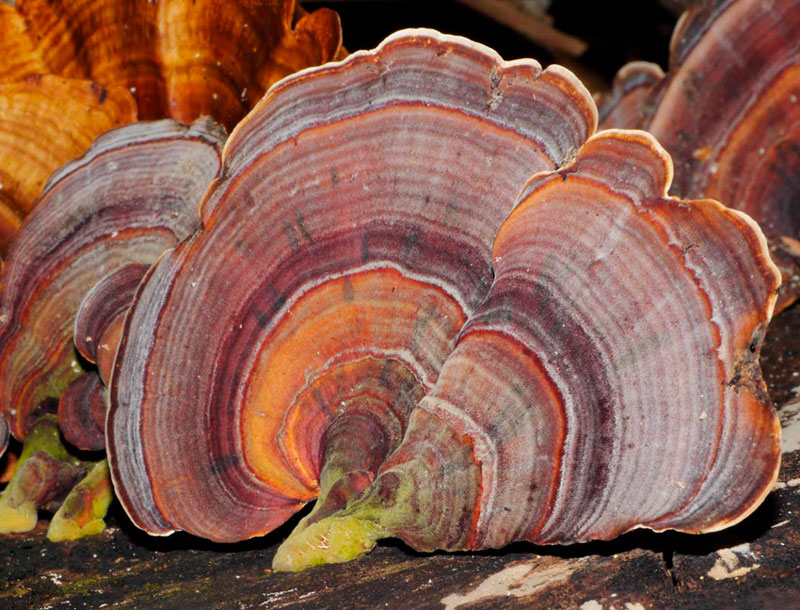
Turkey tail mushroom, Coriolus versicolor, a valuable and common mushroom with important properties for our body.
Trametes versicolor or Coriolus versicolor, also known as turkey tail mushroom, is a fairly common mushroom. It can be found growing on substrates with a lot of organic matter, mainly on the trunks of deciduous trees and other trees. This is not surprising, as this is where it gets its nutrients.
This text is for informational purposes only and should not be considered a substitute for professional medical advice. Before making any changes to your diet or lifestyle, it is advisable to consult a qualified healthcare professional. Similarly, it is important to note that research on the possible benefits of medicinal mushrooms is limited, and further research is still ongoing to fully understand their effects on the human body.
Trametes versicolor. The turkey tail mushroom
This particular mushroom is known as the turkey tail mushroom. The reason is very obvious if you look at its fruiting body. It looks very much like a peacock's tail.
If you are expecting a delicate and tasty mushroom, you are very much mistaken. The turkey tail mushroom has a very woody consistency and is not considered a good edible mushroom. However, if we want to take advantage of its excellent properties through infusions or medicinal extracts, then we are looking at an excellent mushroom.
Cola de pavo hongo, nombres científicos y populares
- Japanese: Kawaratake (river mushroom)
- Chinese: Yun-zhi (cloud mushroom)
- Spanish: Queue de Paon
- English: Turkey Tail
- Scientific name: Coriolus versicolor, Polyporus versicolor or Trametes versicolor
Trametes versicolor, characteristics of the Turkey Tail mushroom
This mushroom is found almost everywhere in the world and tends to grow on dead tree stumps of different species and in different climates.
It is cultivated on wood for therapeutic purposes and to obtain various extracts for pharmacological use. It is not edible because its flesh is very tough.
The name of the species derives from its beautiful iridescent coloration, to the point that the mushroom is often used in Central Europe for decorative floral arrangements.
Coriolus is probably the most studied medicinal mushroom and its extracts are widely used in Japan as adjuvants in official cancer treatment protocols.
Main medicinal active components of turkey tail mushroom
The most important are beta-glucans and proteoglycans, which act on the cells of the immune system. Two pharmacological extracts are obtained from this mushroom, which are widely used mainly in Japan as adjuvants in conventional antitumor treatments (chemotherapy, radiotherapy, and surgery): Krestin or PSK and Coriolan or PSP, both of which are long molecules formed by a bond between polysaccharides and proteins.
In laboratory animals, ingested PSK has been shown to act on tumor cells by blocking their growth (some studies have shown that this molecule inhibits telomerase in tumor cells by blocking their division). It has also demonstrated bactericidal and antiviral activity produced by the potentiation of NK cells.
Grow your own turkey tail mushroom with our Coriolus cultivation kit
Turkey tail mushroom cancer. Effectiveness of turkey tail in antitumor treatments
PSP also shows antitumor activity, activates the thymus, and increases the number of T lymphocytes and the production of interleukins.
These same proteoglycans appear to act by modulating or regulating the immune system, reducing its activity when it is exacerbated or hypersensitive to the point of destroying healthy cells in body tissues; they are therefore of great interest for the treatment of various autoimmune diseases.
The turkey tail mushroom or Trametes versicolor is also rich in ergosterol and other phytosterols such as lanosterol, fungisterol, and beta-sitosterol, which have hypolipidemic, antitumor, and antiviral properties.
Trametes versicolor in traditional Chinese medicine
Stimulates the spleen-pancreas, which is used to reduce Tan (phlegm, but also fibroids, cysts, etc.), disperse moisture, unblock and tone the qi. It is mainly used to treat lung diseases (where phlegm stagnates). Very beneficial for patients weakened by chronic diseases.
Trametes versicolor, What therapeutic effects has turkey tail been shown to have?
Strengthens the immune system, particularly macrophages,
T lymphocytes, and NK cells, which is beneficial for all types of infectious diseases of viral, bacterial, or fungal origin, as well as its antitumor action.
Immunoregulator. The normalization of immune system overactivity makes its use very interesting against autoimmune diseases. Its polysaccharides tend to restore the balance of Th1/Th2 lymphocytes, which promotes the production of anti-pathogenic and anti-tumor cytokines. Its application in autoimmune diseases and other diseases related to the uncontrolled immune system has shown good results: Chronic fatigue syndrome, Irritable bowel syndrome, Fibromyalgia, autoimmune hepatitis, hypothyroidism, and recurrent cystitis.
Coriolus versicolor, a mushroom with antibacterial and antiviral properties.
Contains molecules that act directly against bacteria and viruses, independently of their immune system-boosting properties. Special antiviral action against viruses associated with certain types of cancer, such as herpes virus 8 (HHV-8), Epstein-Barr virus (EBV), papillomavirus (HPV), and hepatitis B virus.
Antitumor: Turkey tail and cancer. In addition to the antitumor action derived from the stimulation of the immune system, PSK and PSP have an adjuvant and restorative action on standard chemotherapy and radiotherapy protocols thanks to their antioxidant, antiteratogenic, and antimutagenic effects (protection against DNA damage caused by radiotherapy). In addition to inducing apoptosis (cell death) in tumor cells by inhibiting telomerase and other mechanisms, it also has an analgesic effect.
Hypolipidemic: its beta-sitosterol and other phytosterol content has the property of lowering total serum cholesterol.
Precautions before taking Trametes versicolor, Turkey tail mushroom
- As an immunomodulator, it should not be consumed if immunosuppressive compounds are being taken.
- Do not administer during pregnancy and breastfeeding or to children under 6 years of age.
- Do not administer if allergic to mushrooms.
Trametes versicolor extracts
Several extracts of this mushroom are available on the market, although the use of the standardized pure extract from organic production and contained in a vegetable capsule is recommended. This guarantees that it is a natural extract obtained through non-denaturing biotechnological processes.
When is it recommended to take Coriolus or Trametes versicolor?
- Immune deficiency
- Chronic or recurrent infections Viral infections:
- Influenza
- Herpes
- Hepatitis B and C Autoimmune hepatitis HIV and AIDS
- HPV (Papilloma virus)
- Chronic viral diseases
- Autoimmune diseases
- Allergies
- Improvements in chronic fatigue syndrome Improvements in fibromyalgia
- Lipidemia and high cholesterol Adjuvant in cancer treatments:
- Esophageal Gastric Nasopharyngeal Pulmonary
- Breast hormone-dependent Prostate
- Ovarian
- Cervical
- Colorectal
- Lymphoma
This text is for informational purposes only and should not be considered a substitute for professional medical advice. Before making any changes to your diet or lifestyle, it is recommended that you consult a qualified healthcare professional. Similarly, it is important to keep in mind that research on the potential benefits of medicinal mushrooms is limited and that further research is still ongoing to fully understand their effects on the human body.
Health and medicinal mushrooms!

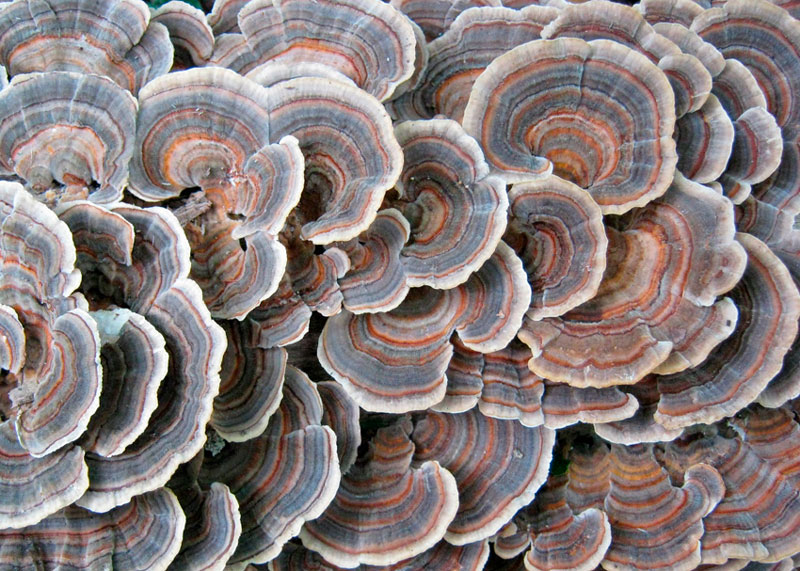
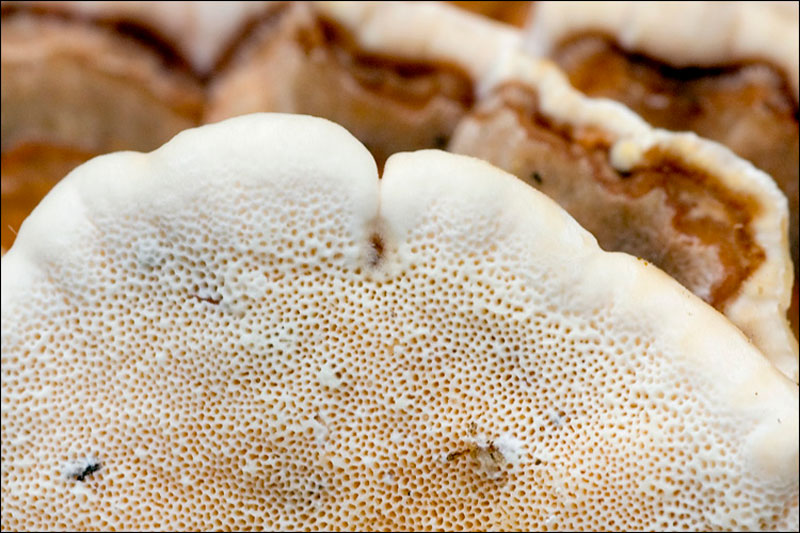
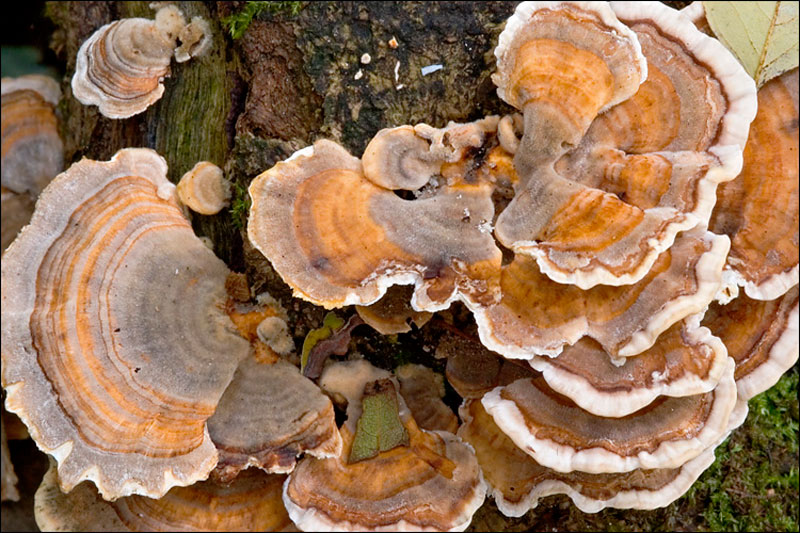
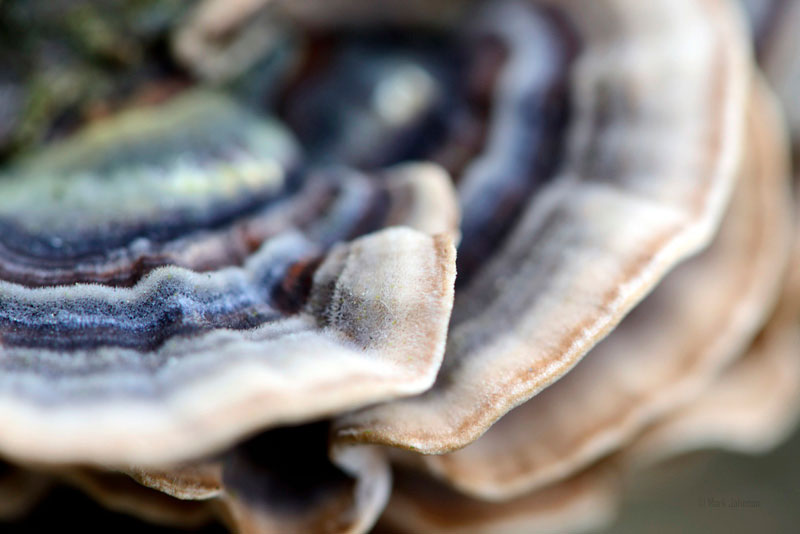
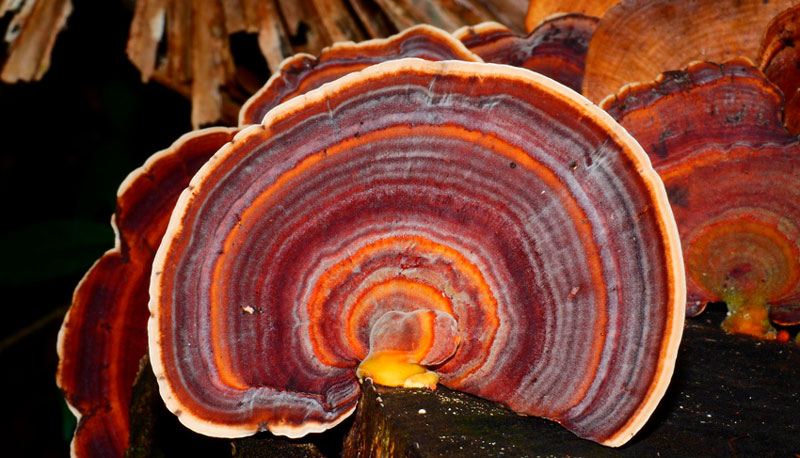
Te pueden interesar